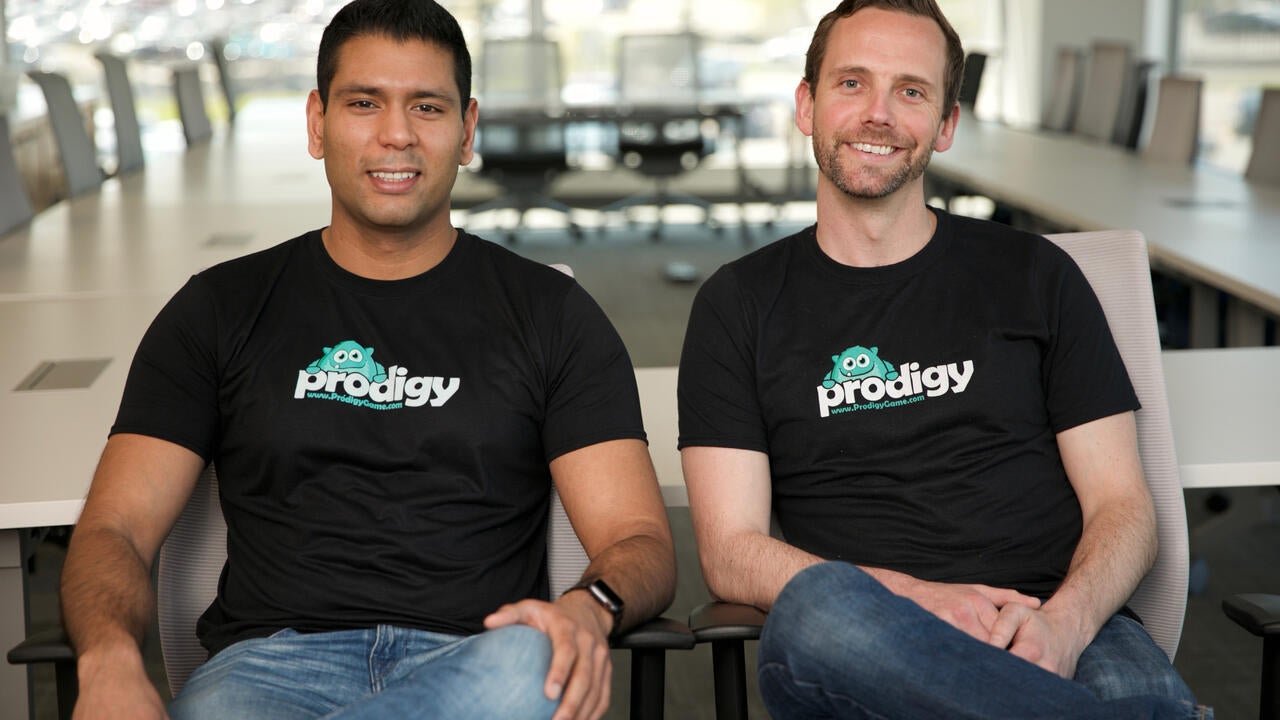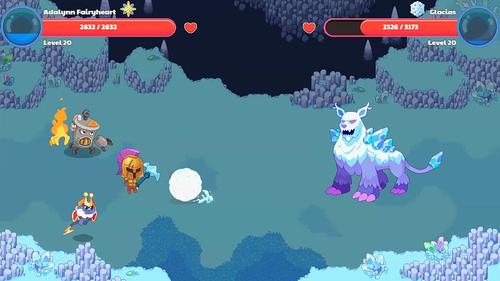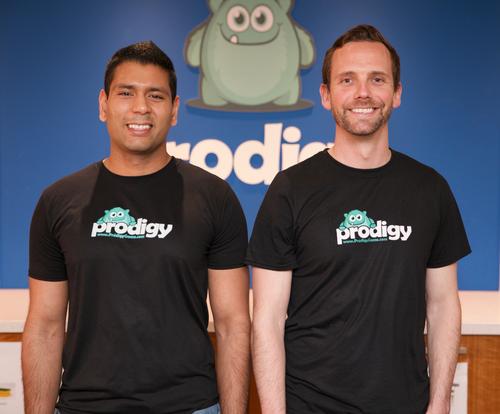
Having fun with math online during COVID-19
Founded by Waterloo alumni, Prodigy supports teachers and families as education moves home.

Founded by Waterloo alumni, Prodigy supports teachers and families as education moves home.
By Claire Mastrangelo Office of AdvancementParents looking for educational resources for their kids have turned to Prodigy, a company created by Waterloo alumni Rohan Mahimker (BASc ’11) and Alexander Peters (BASc ’11).
Their role-playing game by the same name serves over 50 million students in grades 1 through 8, or about 25 per cent of kids in North America. Players create avatars that battle monsters in a magical world, defeating their adversaries by solving math problems.
Until now, the company has largely catered to schools by allowing teachers to tailor the game to their lesson plans and track their students’ progress. But with schools closing and families staying home, Prodigy has shifted its focus to helping parents.
“Our role here is to figure out how we can best support teachers, parents and students during this time,” Rohan says. “We have quite a few staff with backgrounds in education, so there’s a lot of empathy for teachers right now.”
When classrooms cleared out, Rohan thought that educators would engage less with the platform. It turned out he was wrong.
“We’re finding teachers are going above and beyond to connect with their students,” he says. “Some teachers are doing video lessons remotely. Others have recommended a whole slew of resources to parents. One teacher is even running a Tuesday Treasure Hunt where students have to find his avatar and post what he’s wearing.”
Parents have also started using the game to help their children learn at home. They can set goals for their kids, view reports on their child’s progress and adapt the game to help them in areas where they might be struggling. Students have the added benefit of connecting with classmates remotely, although interaction is limited to keep the students focused on the game.

Rohan says the response from parents has been “overwhelmingly positive.”
“We’ve seen a huge spike in registration,” he says. “A lot of working parents want an activity that’s educational and can keep their kids engaged.”
To complement the game, Prodigy runs a digital campaign called Learn from Home, which lists additional resources to help parents keep their kids busy. They post new suggestions each week, including non-screen activities devised by their team.
“This situation brings online learning to the forefront for a lot of parents,” Rohan says. “It allows them to try new resources to support their students.”

Rohan Mahimker (BASc ’11) and Alexander Peters (BASc ’11)
While Rohan expects Prodigy’s focus to shift back to educators following the pandemic, he predicts that this experience will have a longer-lasting impact on the way students learn.
“We thought that when schools closed, teacher activity on the platform would go down. What we've seen is the exact opposite. We’ve seen more teachers logging into the reporting platform to keep track of their students and create assignments and plans. They’ve discovered a new way to interact with their students and stay connected outside of the classroom. I think that’s going to continue after the COVID situation settles down.”

Read more
How Doug Kavanagh’s software engineering degree laid the foundation for a thriving career in patient care

Read more
Upside Robotics secures new funding to accelerate the future of sustainable farming

Read more
Redefining capstone learning by bringing students, faculty and community partners together to tackle real-world challenges
The University of Waterloo acknowledges that much of our work takes place on the traditional territory of the Neutral, Anishinaabeg, and Haudenosaunee peoples. Our main campus is situated on the Haldimand Tract, the land granted to the Six Nations that includes six miles on each side of the Grand River. Our active work toward reconciliation takes place across our campuses through research, learning, teaching, and community building, and is co-ordinated within the Office of Indigenous Relations.